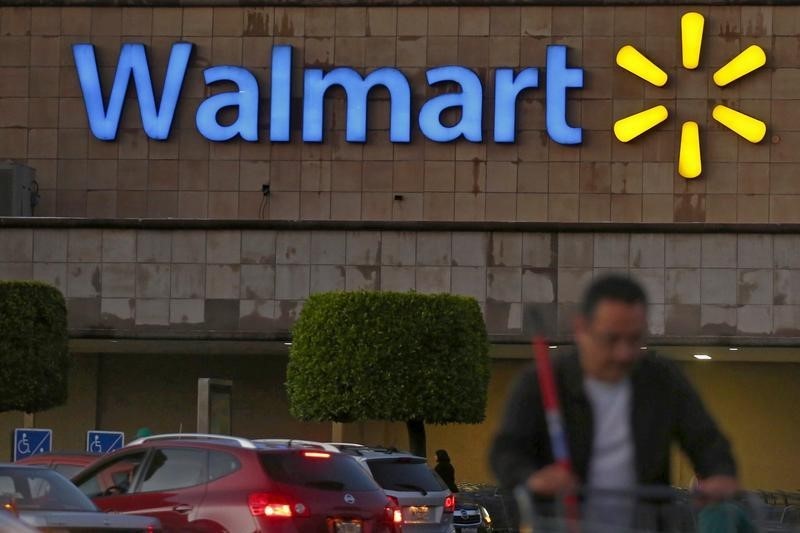Investing.com’s stocks of the week
By Nathan Layne and Sruthi Ramakrishnan
(Reuters) - Wal-Mart Stores Inc (N:WMT) on Tuesday joined the list of U.S. retailers reporting disappointing quarterly results, saying consumers' pocketing tax refunds and savings from cheaper gasoline had dented its sales growth.
Shares of the world's largest retailer tumbled 4.3 percent after it reported sales and earnings below analysts' estimates. Its profit outlook for the current quarter was largely below expectations.
The results illustrate the obstacles facing Chief Executive Officer Doug McMillon, who took the job 15 months ago. The company is hoping a $1 billion investment in workers' pay and training will lead to more engaged employees and stronger sales at its roughly 4,500 U.S. stores.
Wal-Mart said sales at stores open more than a year increased 1.1 percent in the 13 weeks ended on May 1 from a year earlier. Analysts polled by research firm Consensus Metrix had expected a 1.5 percent rise.
The tepid growth underscores sluggish spending across the sector. U.S. retail sales have been flat or lower industrywide in four of the last five months, and results from department store chains Kohls Corp (N:KSS) and Macys Inc (N:M) also disappointed investors last week.
"Many of our U.S. customers are using their tax refunds and the extra money from lower gas prices to pay down debt or put it into savings," McMillon said on a prerecorded earnings call, citing recent surveys.
Wal-Mart said it drew more customer visits in the United States for the second straight quarter and that comparable sales at its smaller-format stores rose 7.9 percent.
But sales of groceries, which account for more than half of the company's total, were flat, Chief Financial Officer Charles Holley said on a call with reporters.
Edward Jones analyst Brian Yarbrough said Wal-Mart might be losing market share to dollar stores and grocery chains like Kroger Co (N:KR), which is projecting 3 percent to 4 percent same-store sales growth this year.
"Wal-Mart is in a tough position on the grocery side because there is no longer this huge price gap between them and conventional grocery store chains," Yarbrough said.
Consumer electronics sales declined, partly because port disruptions on the West Coast delayed TV shipments, Holley said.
Earnings and sales at Wal-Mart's Sam's Club, which sells items in bulk and charges a membership fee, also fell in the quarter. The unit's larger rival, Costco Wholesale Corp (O:COST), is faring much better, Yarbrough said.
Wal-Mart's net profit fell to $3.34 billion, or $1.03 per share, in the first quarter ended April 30 from $3.59 billion, or $1.11 per share, a year earlier. Analysts on average had expected $1.04 per share, according to Thomson Reuters I/B/E/S.
Revenue dipped to $114.83 billion from $114.96 billion. That reflected a hit of about $3.3 billion from the stronger U.S. dollar, which reduces the value of overseas sales.
For the second quarter, Wal-Mart forecast earnings of $1.06 to $1.18 per share, versus the analysts' average estimate of $1.17. It expects the firmer dollar and the increase in workers' pay to hurt results by 8 cents.
